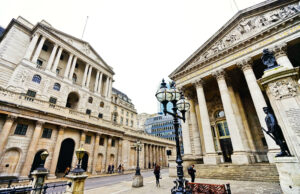Bank of England Deputy Governor says he would consider case for cutting interest rates


A senior Bank of England policymaker has suggested that he could consider voting to cut UK interest rates, if growth and inflation are weaker than expected.
Sir Dave Ramsden, BoE deputy governor, says that while he expects that interest rates will need to rise higher, there are “considerable uncertainties” about the economic outlook.
Giving a speech at the Bank of England Watchers’ Conference in London, Ramsden pledges to take a ‘watchful and responsive’ approach to setting borrowing costs.
“Given the uncertainties we face it is important also to be humble about what we don’t know or still have to learn. I favour a watchful and responsive approach to setting policy.”
“Although my bias is towards further tightening, if the economy develops differently to my expectation and persistence in inflation stops being a concern, then I would consider the case for reducing Bank Rate, as appropriate.”
The Bank has already raised UK base rate to 3%, up from 0.25% at the start of this year, and the City expects rates to peak at 4.5% next summer.
Ramsden has been one of the hawkish members of the Monetary Policy Committee, pushing a faster pace of tightening earlier this year.
Today, he emphasies the uncertainties inherent in the future path of the economy and in the forecasting process, pointing out that the Bank’s predictions for GDP and unemployment are more pessimistic than many other forecasters.
Ramsden adds that 2022 has been a very challenging year for the UK economy, and that higher interest rates are adding to the strain: “Millions of households and businesses are experiencing great hardship as a result of the cost of living crisis. As a member of the MPC I am acutely conscious that our actions are adding to the difficulties caused by the current situation.”
“But he concludes by warning that households and businesses will suffer more damage if high inflation persists.”
However challenging the short term consequences might be for the UK economy, the MPC must take the necessary steps in terms of monetary policy to return inflation to achieve the 2% target sustainably in the medium term.
By restoring low inflation, consistent with its remit, the MPC can best contribute to securing stability and certainty, the foundations for sustainable growth.
Read more:
Bank of England Deputy Governor says he would consider case for cutting interest rates
